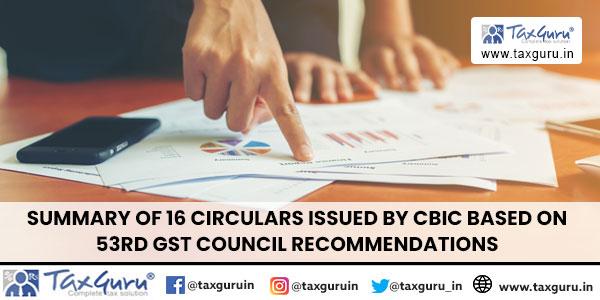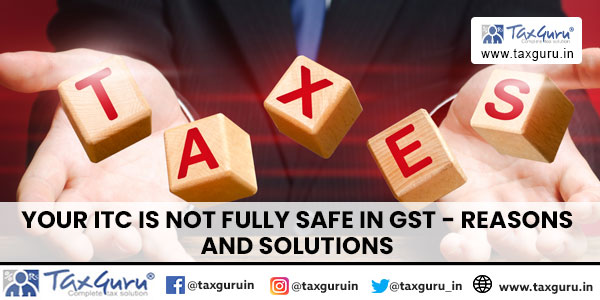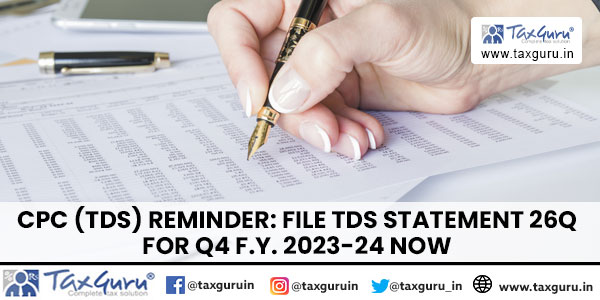Case Law Details
Smt. Annakkalanjiam Mathivanan Vs ACIT (ITAT Chennai)
The Assessing Officer as well as the CIT(Appeals) have to appreciate the fact that the agricultural products in this country are traded in unorganized sector. The workforce in the agricultural sector is unorganized. When the agricultural products are traded in unorganized sector in the country, expecting the assessee to produce bills for sale of agricultural produce is something which cannot be produced by the assessee. Moreover, when the assessee engages labourers in carrying out agricultural operation and incur expenditure, producing vouchers is something uncalled for. What is to be seen is that whether the assessee has cultivated the land as claimed.
Moreover, for yield, there cannot be any other evidence other than estimation. A coconut tree may yield 100-120 nuts in a year. Now the Agriculture Department and Agriculture University invented hybrid coconut varieties which give 150-200 nuts in a year. Therefore, estimation of yield in agriculture is something difficult and which needs to be appreciated by the authorities who are performing judicial function. When agricultural produce including coconuts is traded in unorganized market like Uzhavar Sandhai and other local market, expecting the assessee to produce bills and vouchers is nothing but asking the assessee to perform an impossible task. Therefore, this Tribunal finds no reason to disallow any claim of the assessee. Had the Assessing Officer found that the assessee has no land or he has not cultivated as claimed, the matter might have stood in a different foot. In this case, the Assessing Officer accepted the fact that the assessee has cultivated the land. The only reason for disallowance is that the assessee could not produce bills and vouchers for sale of agricultural produce and receipts for expenses. Apart from that, the assessee has established by producing copy of adangal extract that the land in question was subject to cultivation. In those circumstances, this Tribunal is of the considered opinion that there is no reason to disallow any part of claim.
FULL TEXT OF THE ITAT JUDGMENT
This appeal of the assessee is directed against the order of the Commissioner of Income Tax (Appeals) -14, Chennai, dated 29.06.2018 and pertains to assessment year 2015-16.
2. Shri S. Sridhar, the Ld.counsel for the assessee, submitted that the assessee disclosed a sum of Rs. 20,00,000/- from agriculture. However, the Assessing Officer restricted the same to Rs. 12,00,000/- and the remaining amount of Rs. 8 lakhs was added to the taxable income. According to the Ld. counsel, the cultivation made by the assessee is not disputed. The reason for disallowance was made only on the ground that the assessee could not produce bills and vouchers for sale of agricultural produce. According to the Ld. counsel, when the cultivation is not disputed, the Assessing Officer ought not to have disallowed any portion of amount disclosed by the assessee. The Ld.counsel further clarified that the assessee, in fact, cultivated 22 acres of land. Referring to the copy of adangal extract, which is available at page 23 to 27 of the paper-book, the Ld.counsel submitted that the assessee is cultivating paddy, coconut and teak. Therefore, according to the Ld. counsel, the Assessing Officer is not justified in disallowing the claim of the assessee.
3. On the contrary, Shri S Rengarajan, the Ld. Departmental Representative, submitted that in the absence of any bills for sale of agricultural produce, the Assessing Officer reasonably estimated the income at 12,00,000/-. Accordingly, the balance amount of 8,00,000/- was treated as taxable income. On a query from the Bench whether any investment was said to be made from agricultural income? The Ld. D.R. clarified that no such investment was made during the year under consideration.
4. We have considered the rival submissions on either side and perused the relevant material available on record. The issue arises for consideration is addition of 8,00,000/- out of 20,00,000/-disclosed by the assessee as agricultural income. The Assessing Officer found that the assessee could not produce any bills and vouchers for sale of agricultural produce. The assessee also could not produce any receipts for expenditure incurred. From the order of the Assessing Officer it appears that the assessee has filed certificate from the Village Administrative Officer. The CIT(Appeals), however, found that the assessee could not establish that he was carrying out agricultural operation on the land. The fact remains that the adangal extract available before the lower authorities and before this Tribunal establishes that the assessee was cultivating paddy, coconut, teak, etc. on the subject land. Therefore, the CIT(Appeals) is not justified in saying that the assessee could not establish the fact of cultivation. The fact of cultivation is established by the assessee. Both the authorities below dispute the sale of agricultural produce. Since the assessee could not produce bills and vouchers for sale of agricultural produce and expenses, the claim of the assessee was disbelieved.
5. The Assessing Officer as well as the CIT(Appeals) have to appreciate the fact that the agricultural products in this country are traded in unorganized sector. The workforce in the agricultural sector is unorganized. When the agricultural products are traded in unorganized sector in the country, expecting the assessee to produce bills for sale of agricultural produce is something which cannot be produced by the assessee. Moreover, when the assessee engages labourers in carrying out agricultural operation and incur expenditure, producing vouchers is something uncalled for. What is to be seen is that whether the assessee has cultivated the land as claimed. When the assessee claims that the land was cultivated with certain crops and when the Assessing Officer has taken up the assessment for examination after three or four years from the relevant financial year, no material evidence will be available on the land to show that the assessee has cultivated as claimed. The only evidence available is the record maintained by the State Government in its Revenue Department. As per the Revenue Board’s standing orders of Government of Tamil Nadu, the Village Administrative Officer in his official duty has to go round the village and take stock of the cultivation made at the relevant field and it has to be recorded in Village Account No.2. The Village Account No.2 is otherwise known as adangal. Therefore, the only official document maintained in the course of administration is the adangal extract maintained by the Village Administrative Officer. Beyond this, the assessee cannot produce any evidence for establishing the cultivation.
6. Moreover, for yield, there cannot be any other evidence other than estimation. A coconut tree may yield 100-120 nuts in a year. Now the Agriculture Department and Agriculture University invented hybrid coconut varieties which give 150-200 nuts in a year. Therefore, estimation of yield in agriculture is something difficult and which needs to be appreciated by the authorities who are performing judicial function. When agricultural produce including coconuts is traded in unorganized market like Uzhavar Sandhai and other local market, expecting the assessee to produce bills and vouchers is nothing but asking the assessee to perform an impossible task. Therefore, this Tribunal finds no reason to disallow any claim of the assessee. Had the Assessing Officer found that the assessee has no land or he has not cultivated as claimed, the matter might have stood in a different foot. In this case, the Assessing Officer accepted the fact that the assessee has cultivated the land. The only reason for disallowance is that the assessee could not produce bills and vouchers for sale of agricultural produce and receipts for expenses. Apart from that, the assessee has established by producing copy of adangal extract that the land in question was subject to cultivation. In those circumstances, this Tribunal is of the considered opinion that there is no reason to disallow any part of claim. Therefore, this Tribunal is unable to uphold the order of the lower authority. Accordingly, orders of both the authorities below are set aside and the Assessing Officer is directed to delete the addition of 8,00,000/-.
7. In the result, the appeal filed by the assessee is allowed.



























